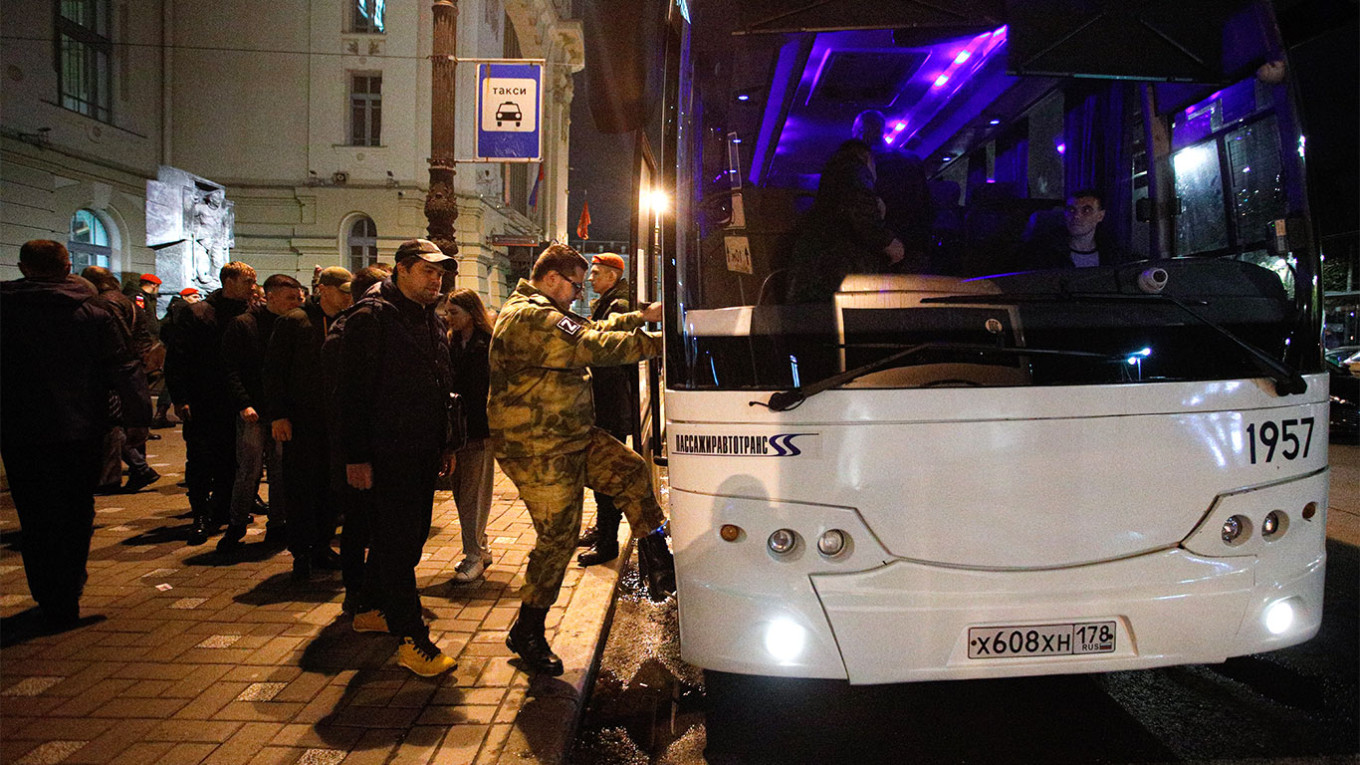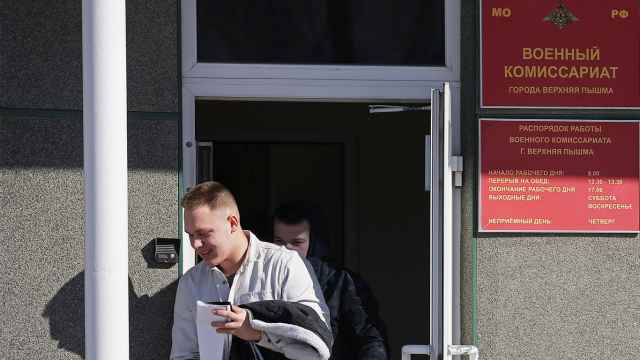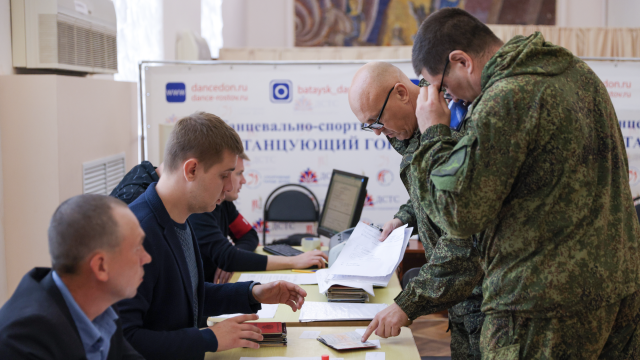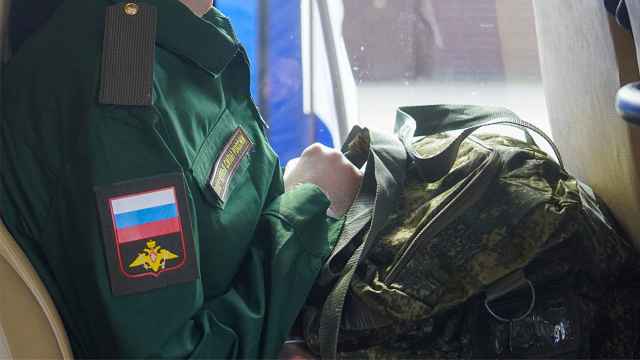Russian military recruiters appear to be employing new and increasingly desperate methods to round up men for the Kremlin’s "partial" mobilization drive.
Military and law enforcement officials in Moscow and St. Petersburg on Friday were seen inspecting the identity papers of passers-by around the entrance to metro stations and handing out draft notices to eligible men in the hallways of apartment buildings, according to local media and eyewitness accounts.
In St. Petersburg officials holding stacks of draft papers were apprehending people inside an apartment complex in the city’s northern Kalininsky district from 7:30 a.m., according to a video posted by one resident.
The reports were later confirmed by local authorities who said that both the police and Defense Ministry employees were being dispatched in teams created to "inform citizens about the need to report" to enlistment offices, according to information obtained by RBC Daily.
"Given that…[some] residents of the Kalininsky district who received the call-up papers in person didn’t come to the draft office…they were issued the papers again," a representative of the St. Petersburg city administration was quoted as saying by RBC Daily.
But higher-ranking Russian officials were quick to denounce the use of such methods to bolster the number of recruits to the Russian military.
Kirill Kabanov, a member of Russia’s Presidential Human Rights Council, said he had received a complaint about the "illegal" actions of the authorities in Moscow and called on the head of the council to file a complaint to the Russian prosecutor's office.
"These actions do more harm than Ukrainian propaganda…it is hard to even imagine the moral and socio-political consequences of such actions," Kabanov wrote on Telegram.
Kabanov’s concerns were also echoed by Andrey Klishas, a member of Russia's Federation Council, who said that such actions and those who ordered them should be subject to "legal assessment."
A Message from The Moscow Times:
Dear readers,
We are facing unprecedented challenges. Russia's Prosecutor General's Office has designated The Moscow Times as an "undesirable" organization, criminalizing our work and putting our staff at risk of prosecution. This follows our earlier unjust labeling as a "foreign agent."
These actions are direct attempts to silence independent journalism in Russia. The authorities claim our work "discredits the decisions of the Russian leadership." We see things differently: we strive to provide accurate, unbiased reporting on Russia.
We, the journalists of The Moscow Times, refuse to be silenced. But to continue our work, we need your help.
Your support, no matter how small, makes a world of difference. If you can, please support us monthly starting from just $2. It's quick to set up, and every contribution makes a significant impact.
By supporting The Moscow Times, you're defending open, independent journalism in the face of repression. Thank you for standing with us.
Remind me later.






